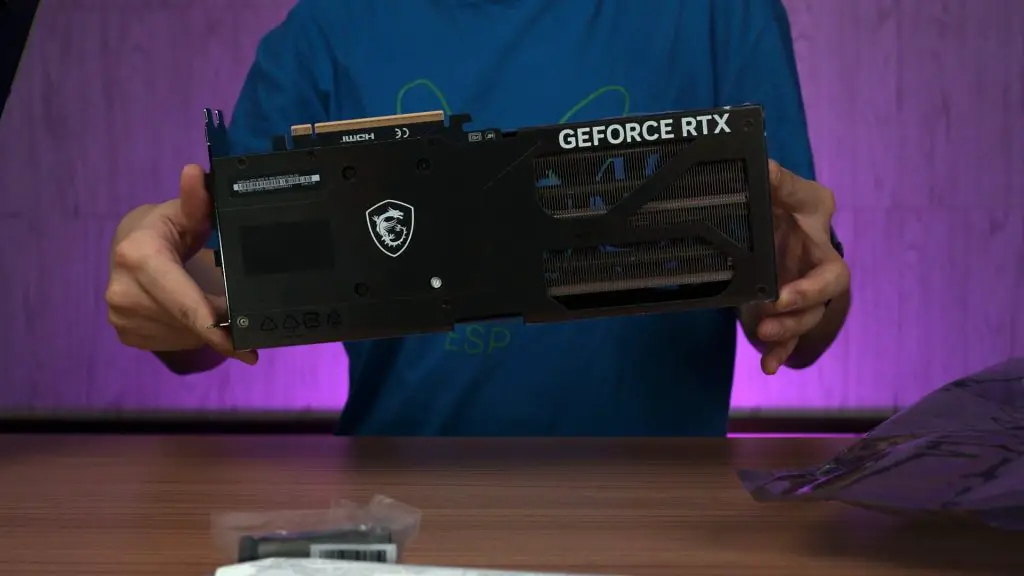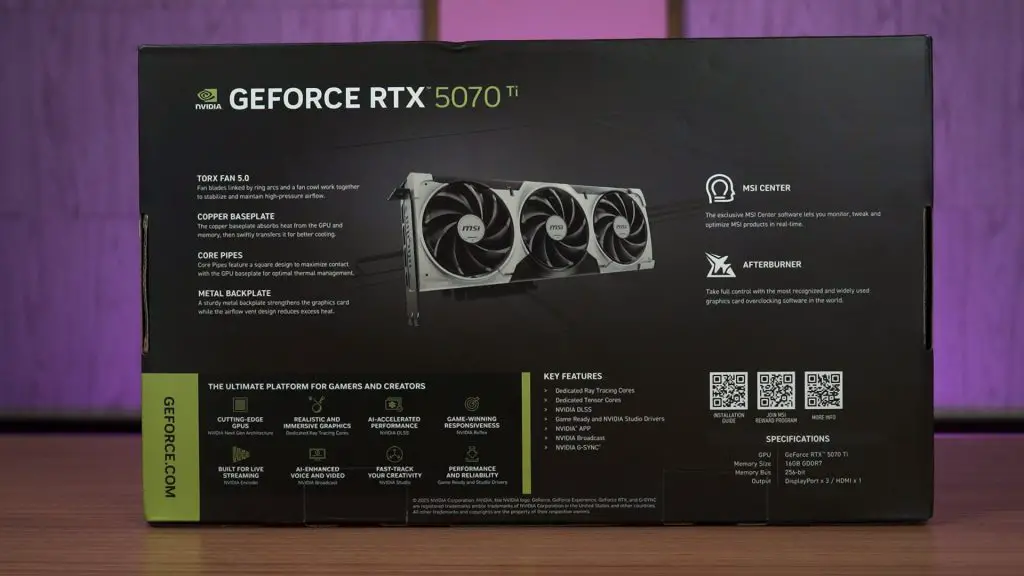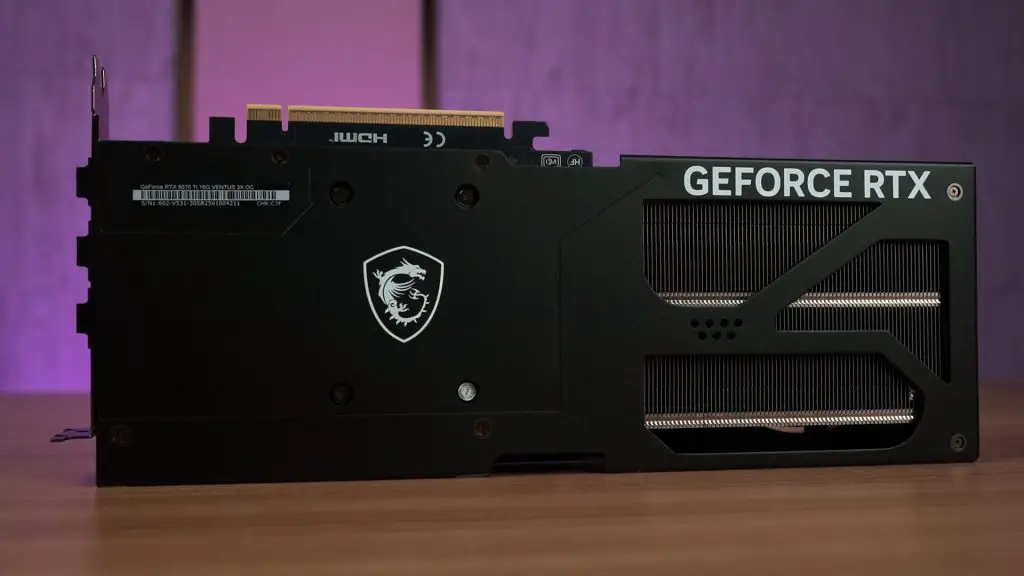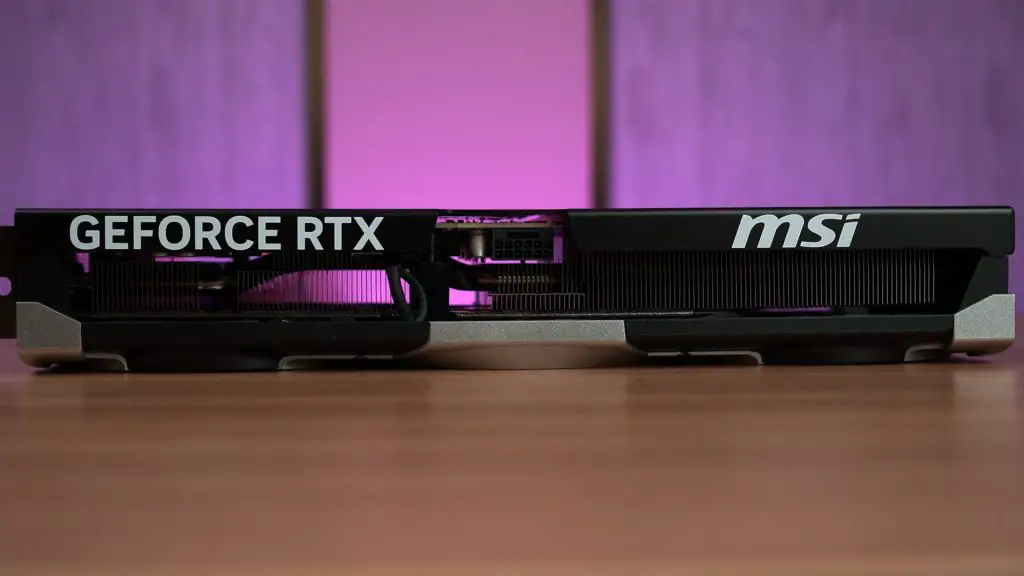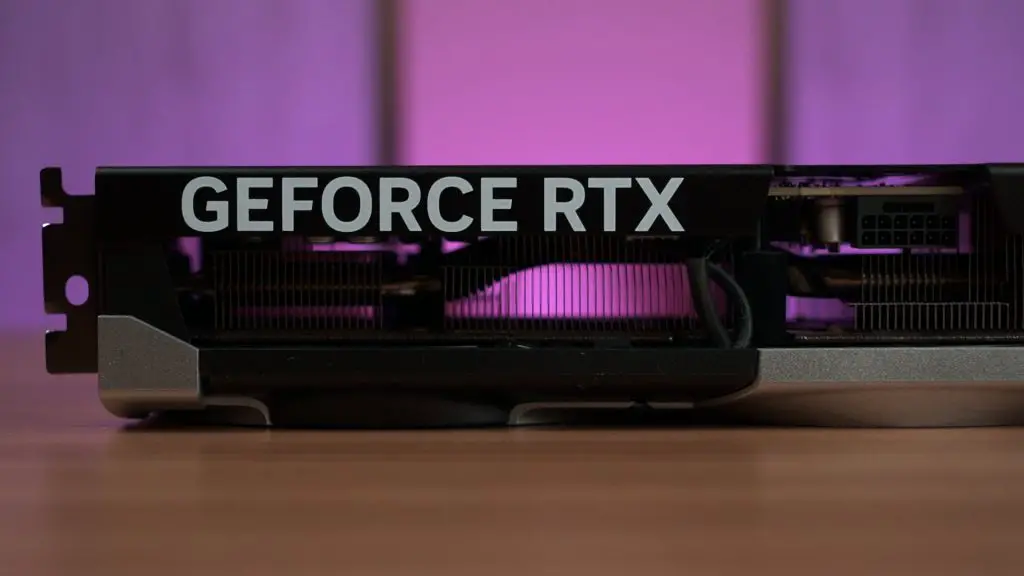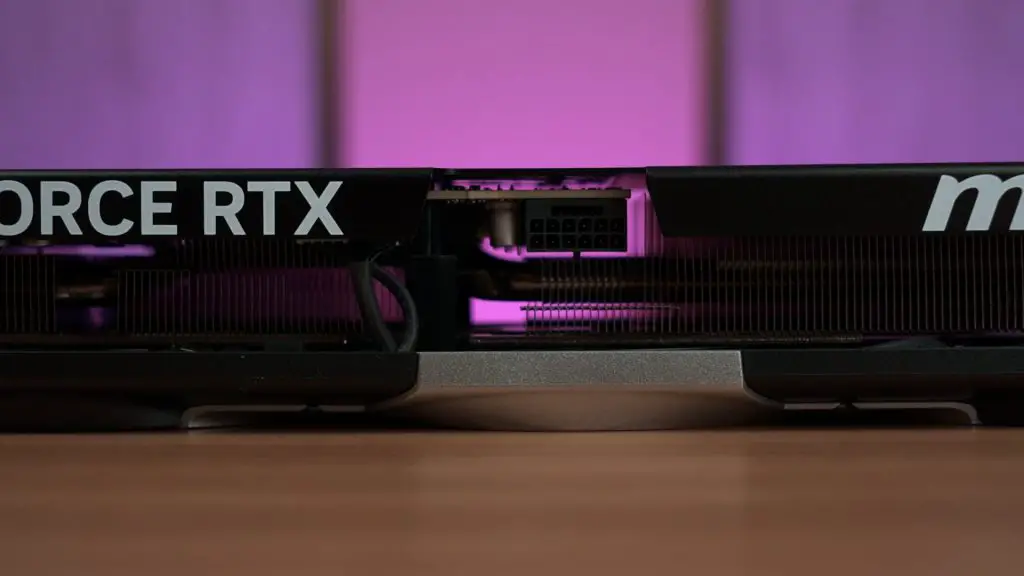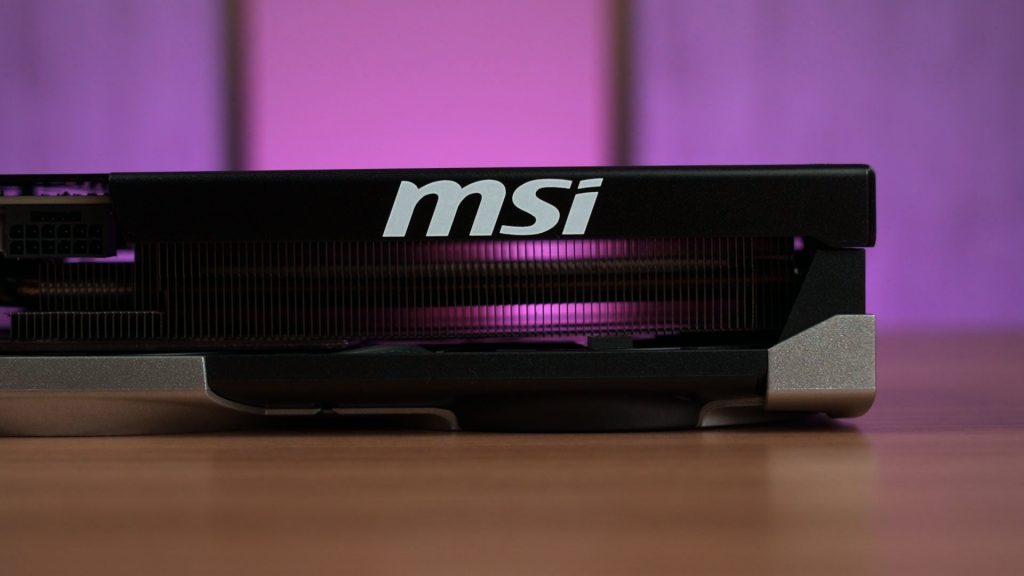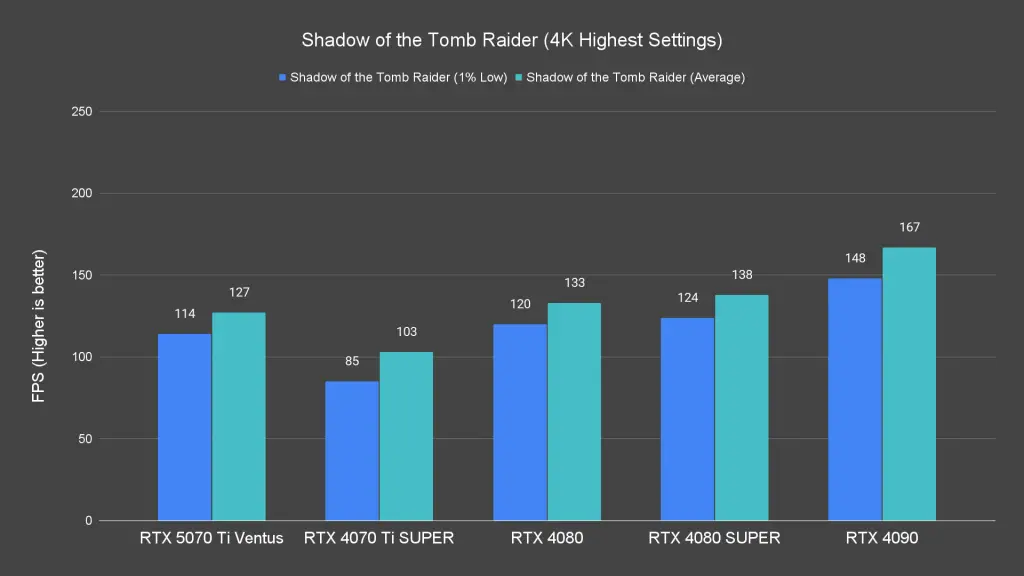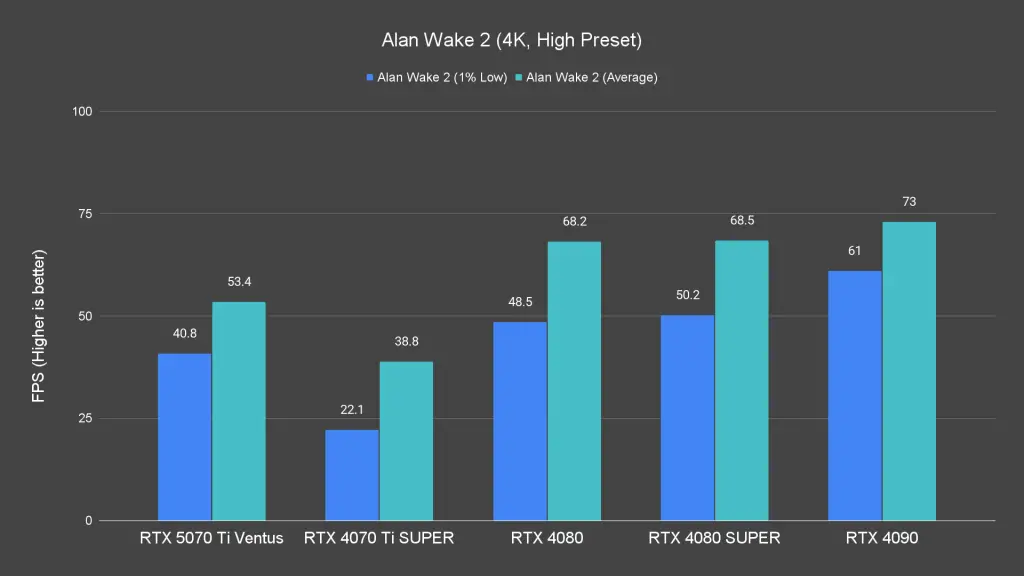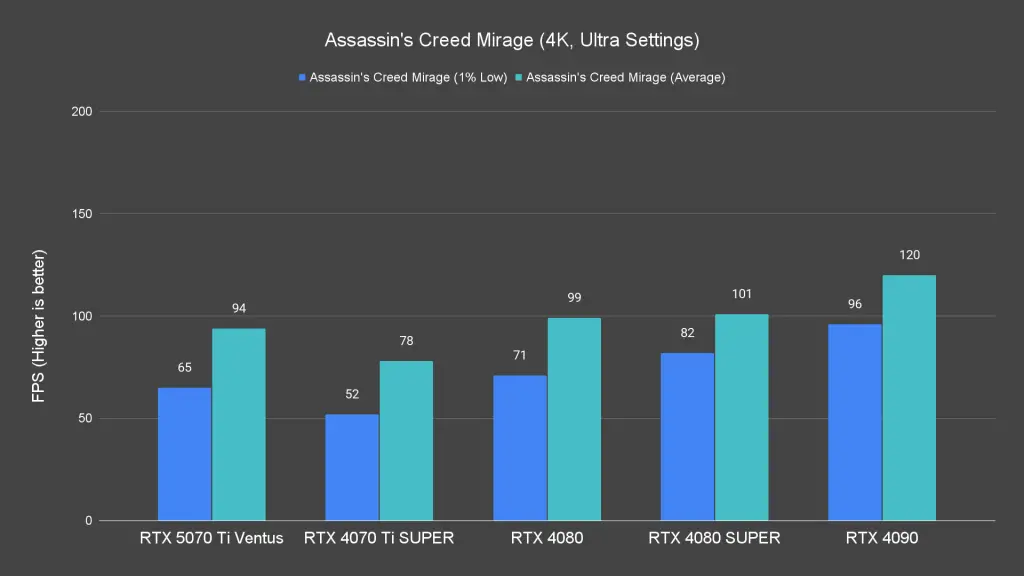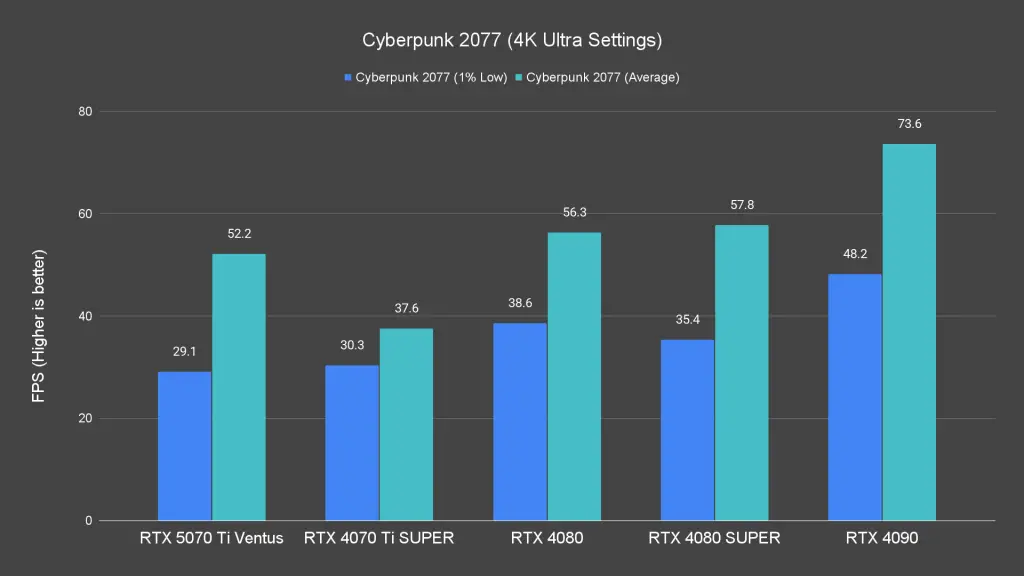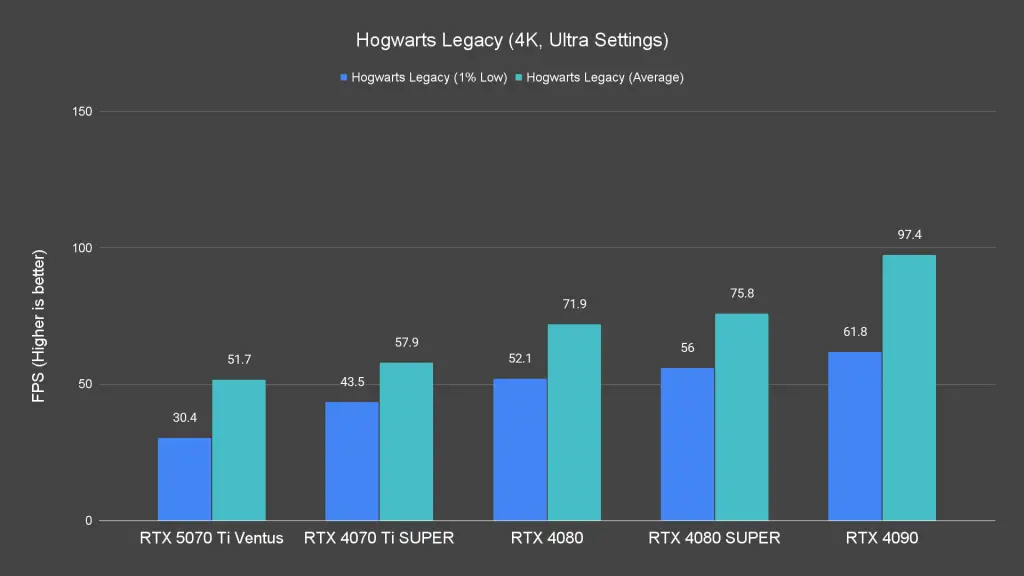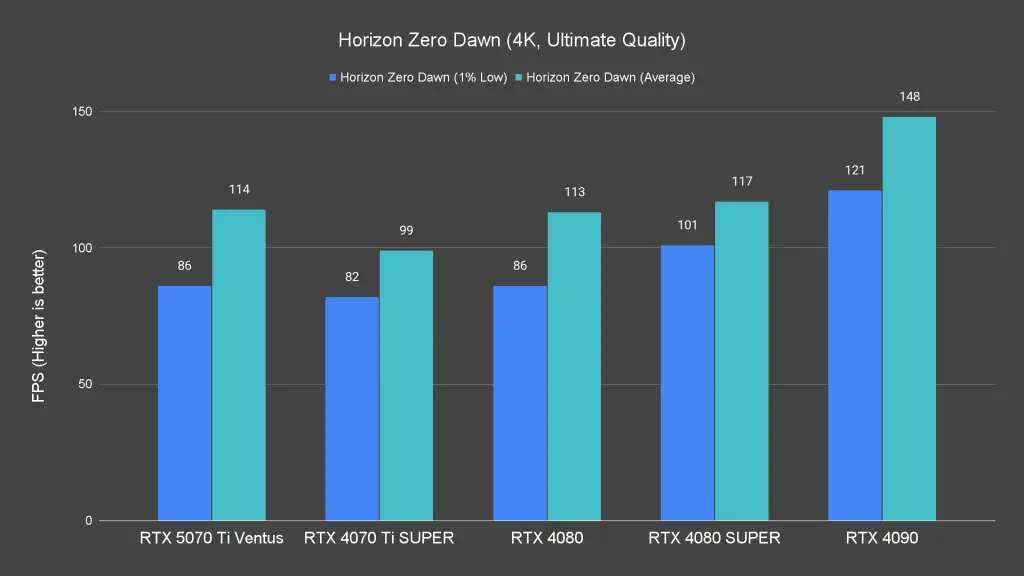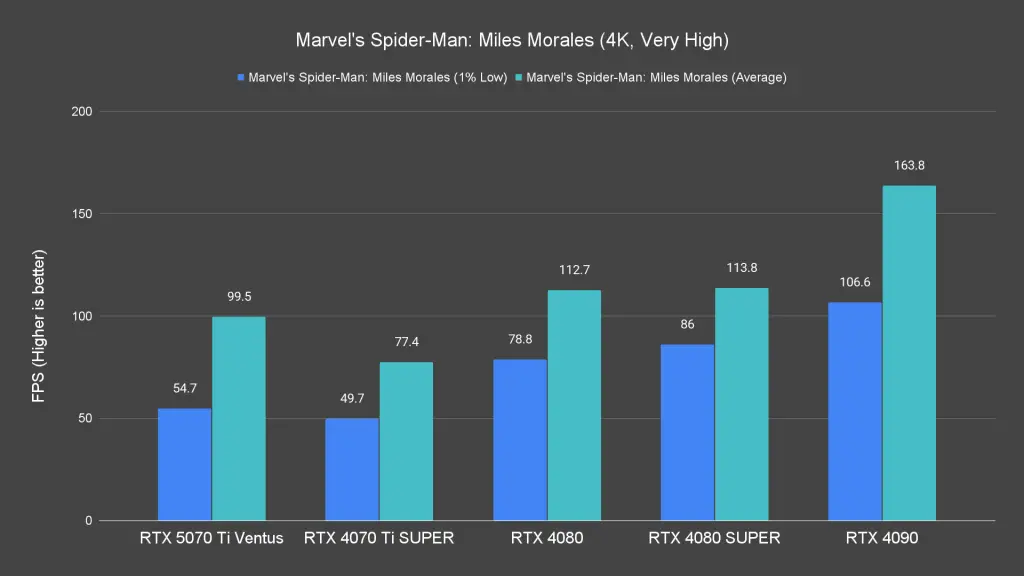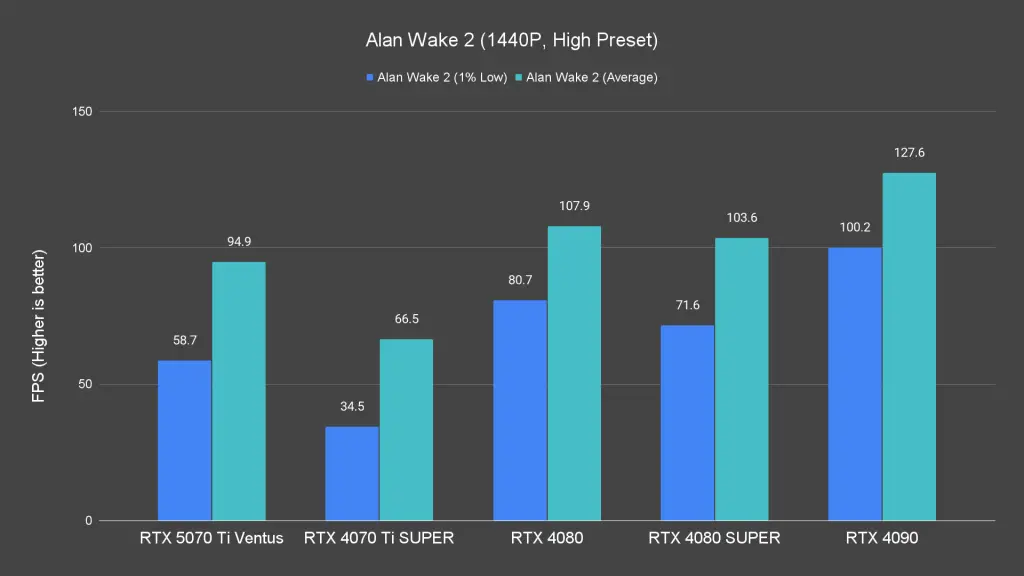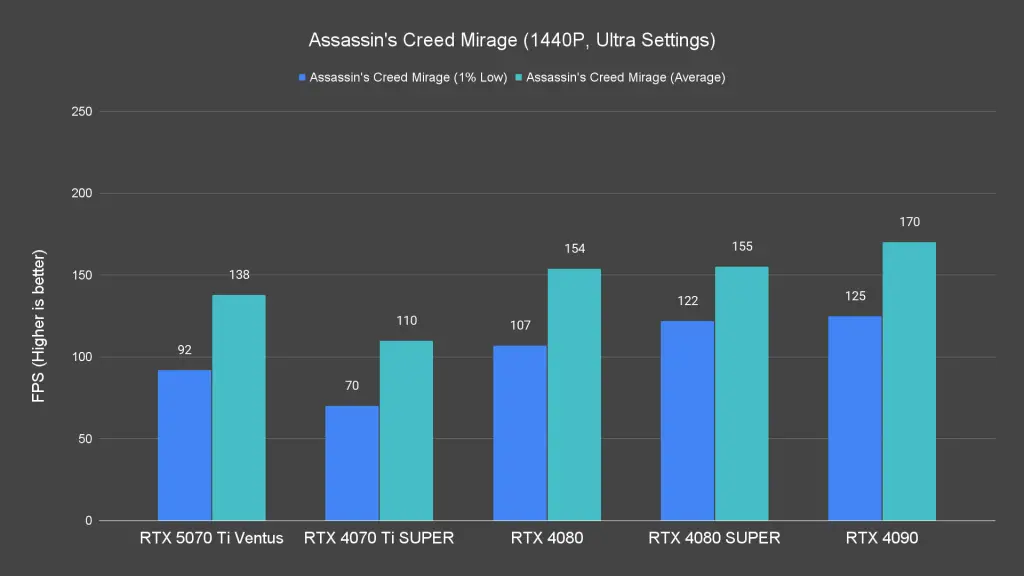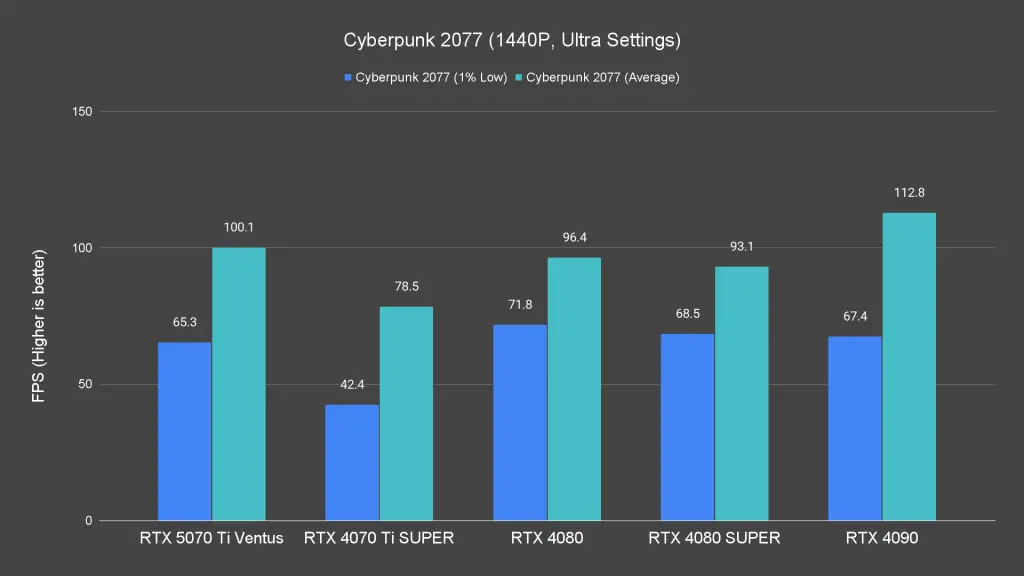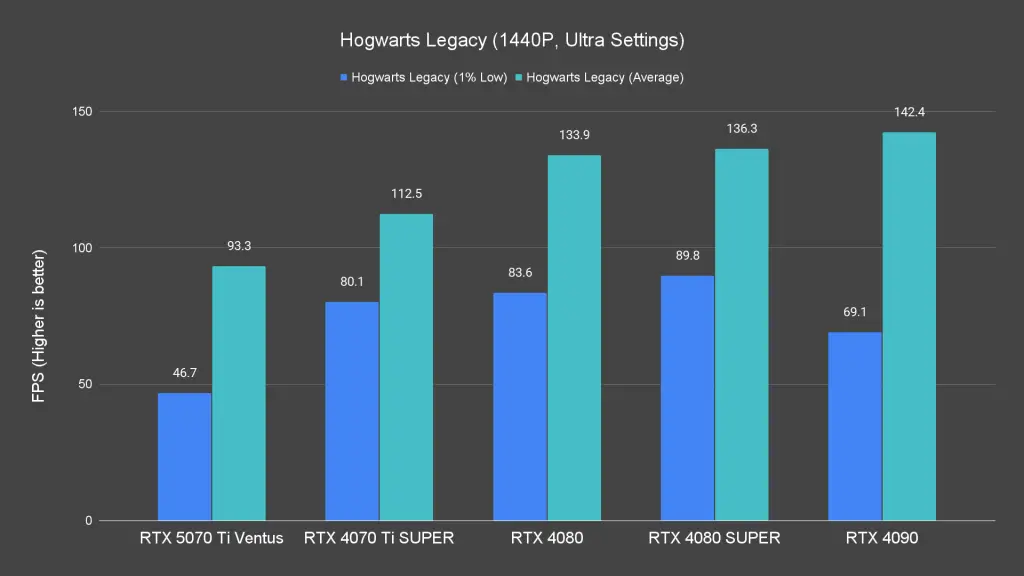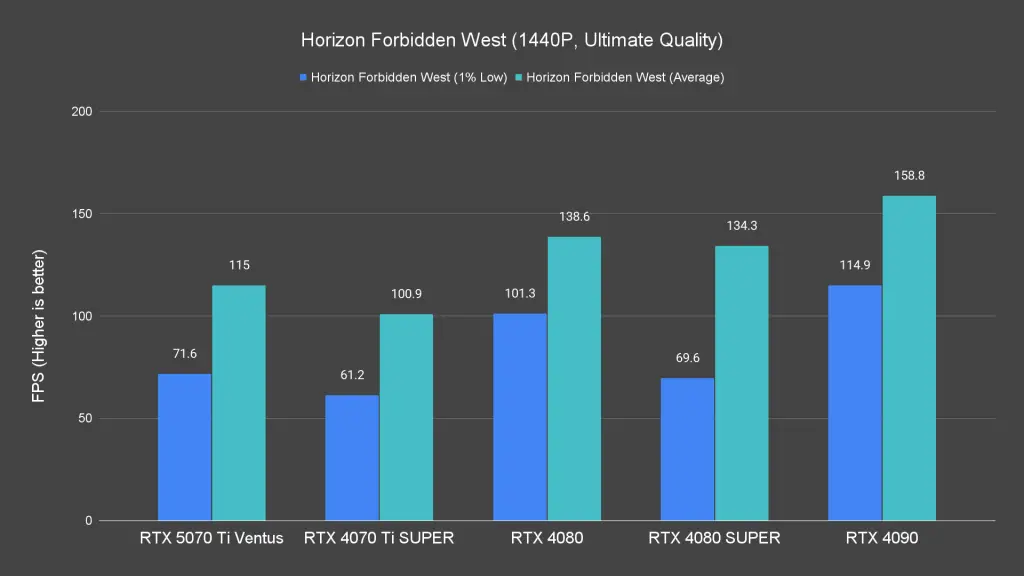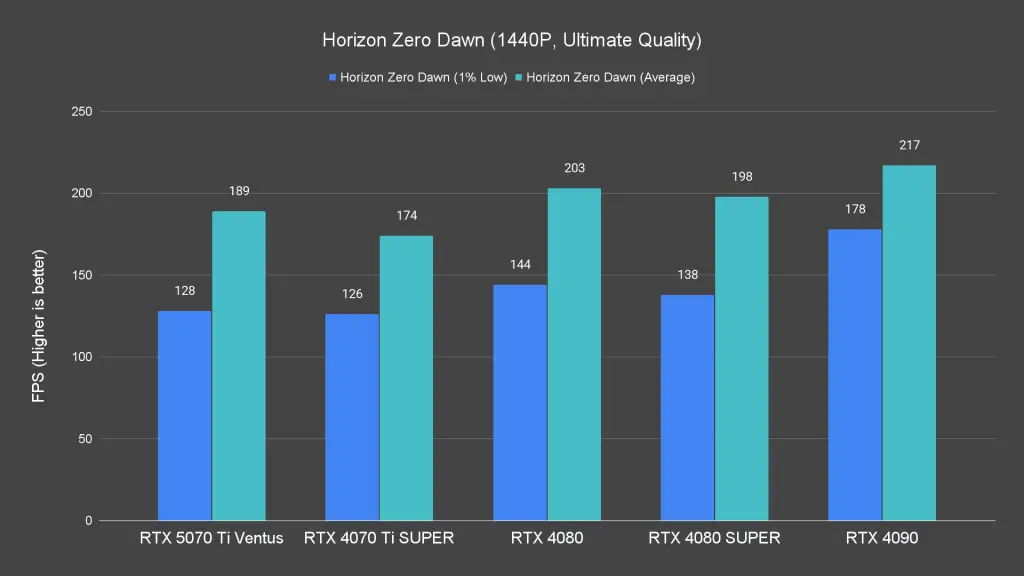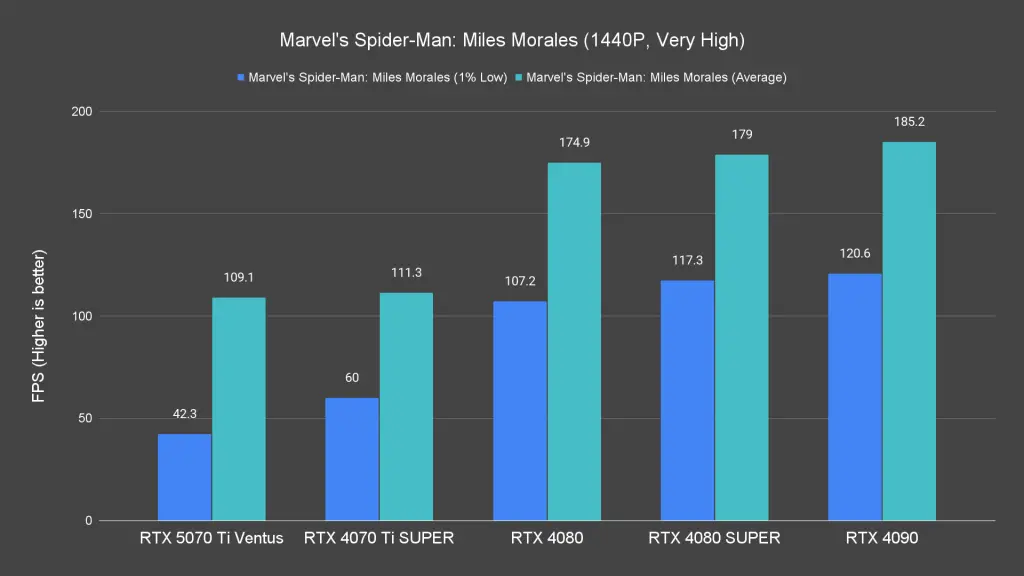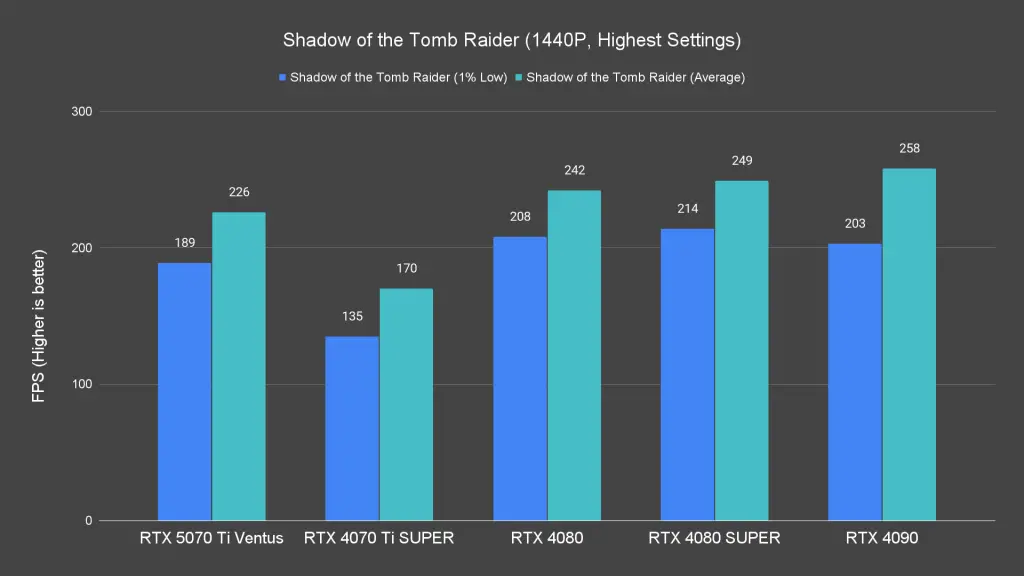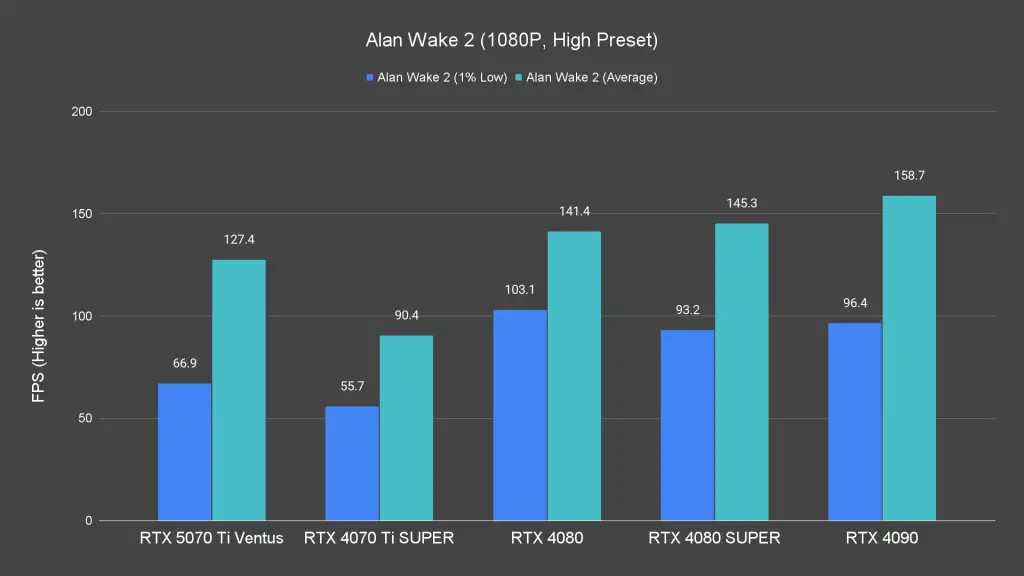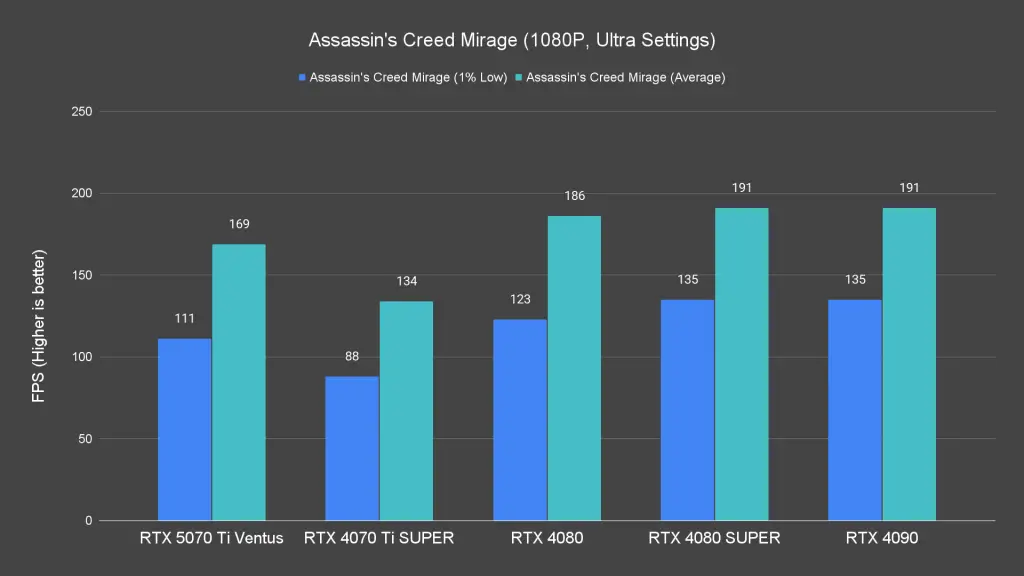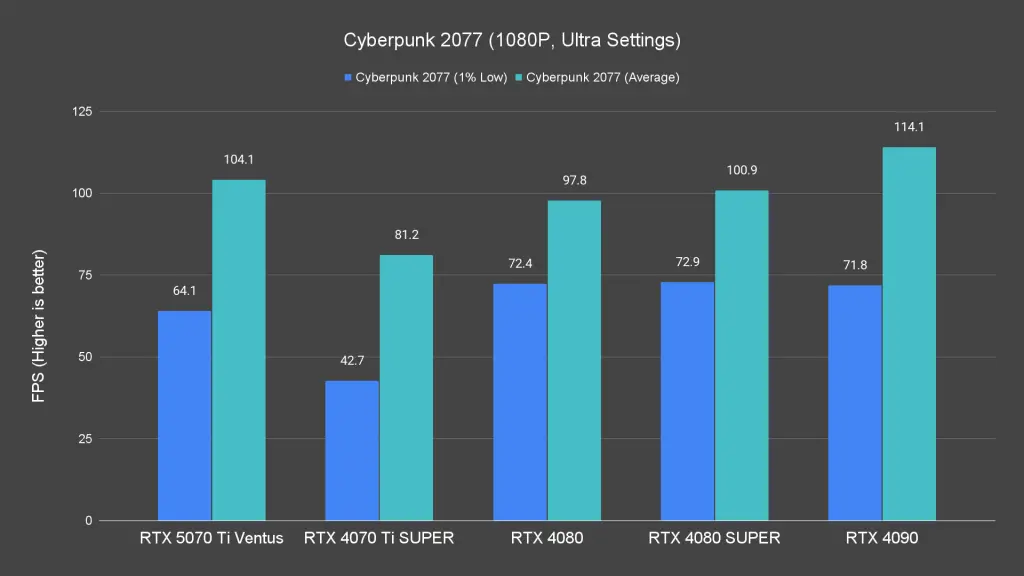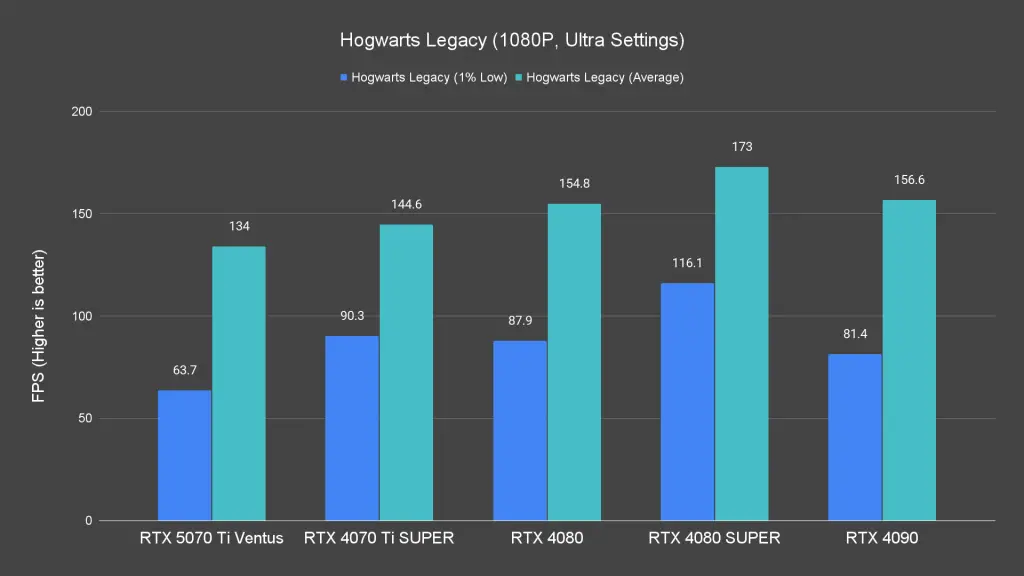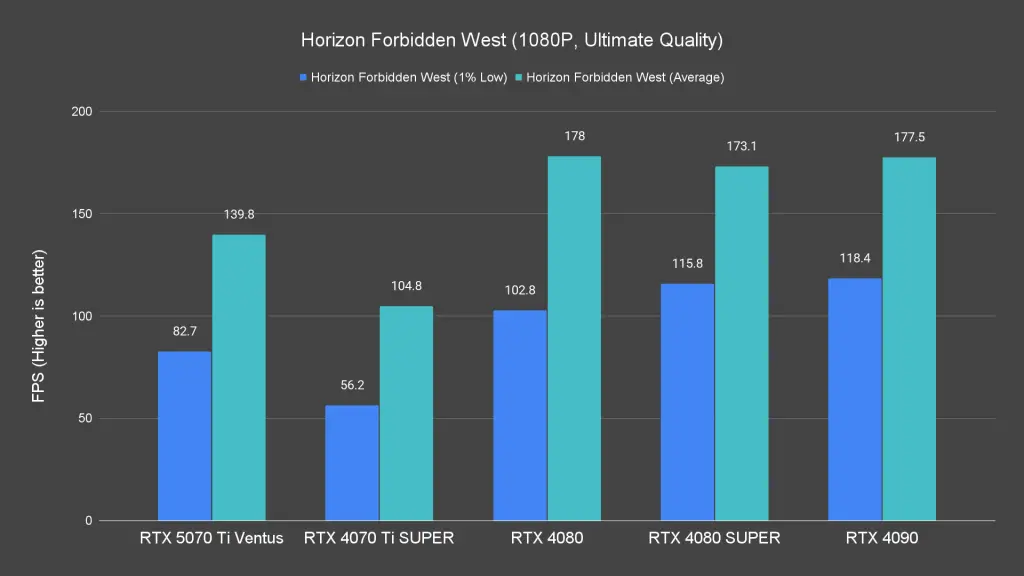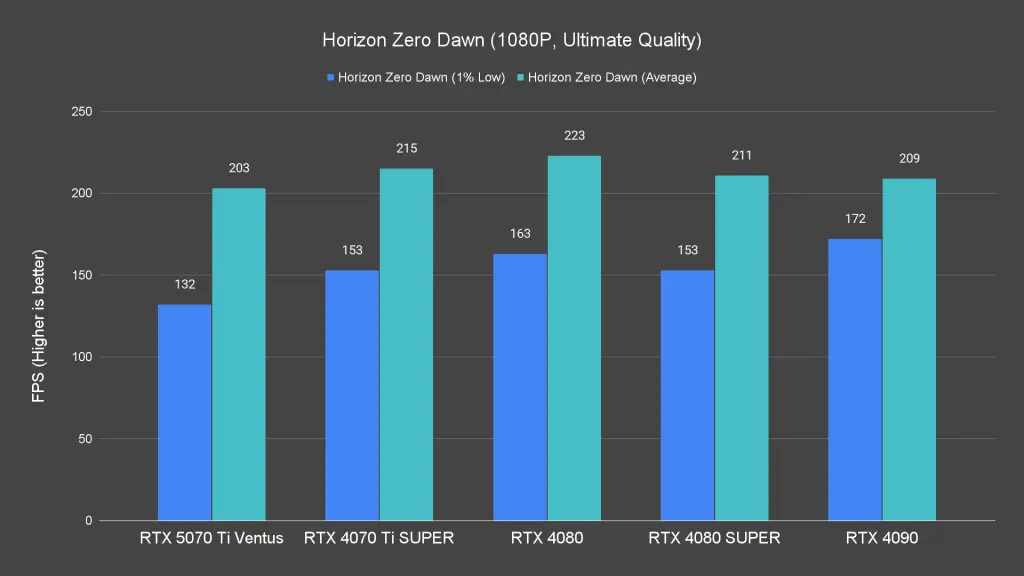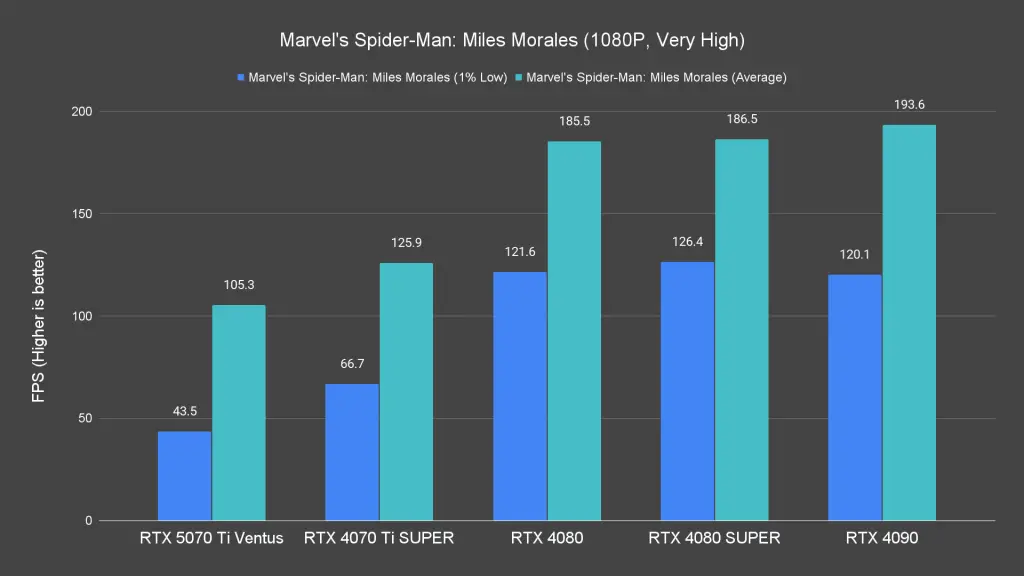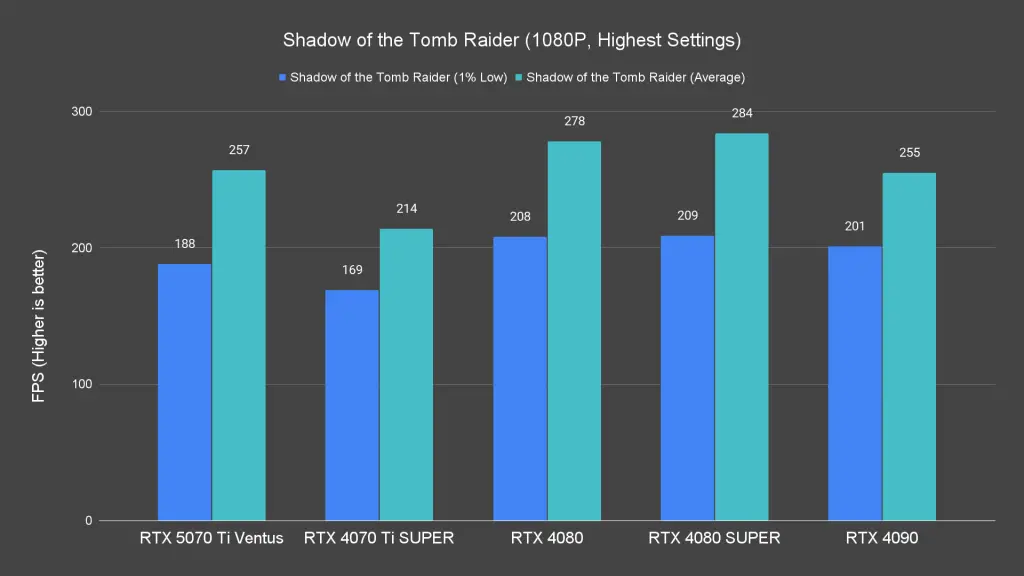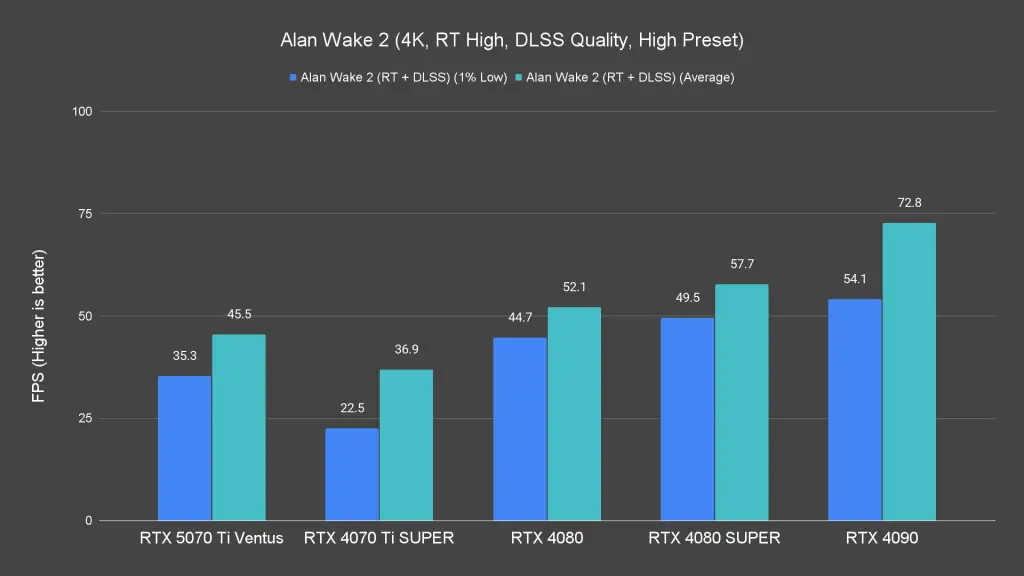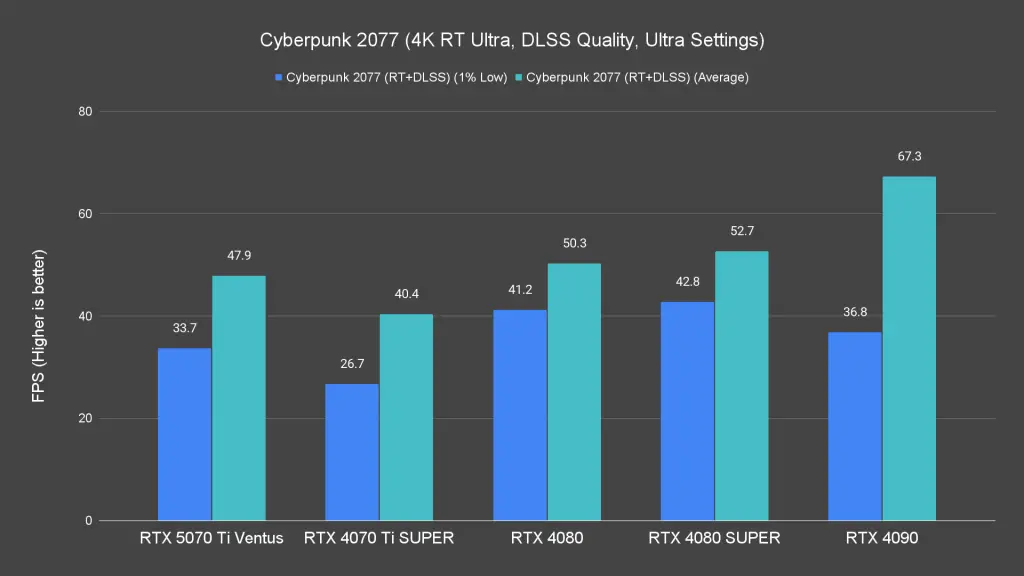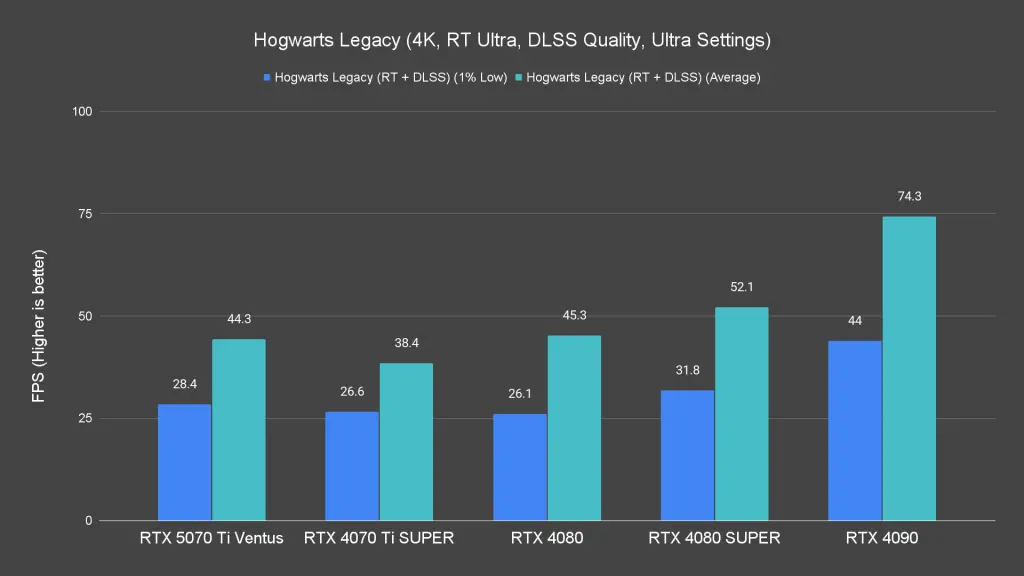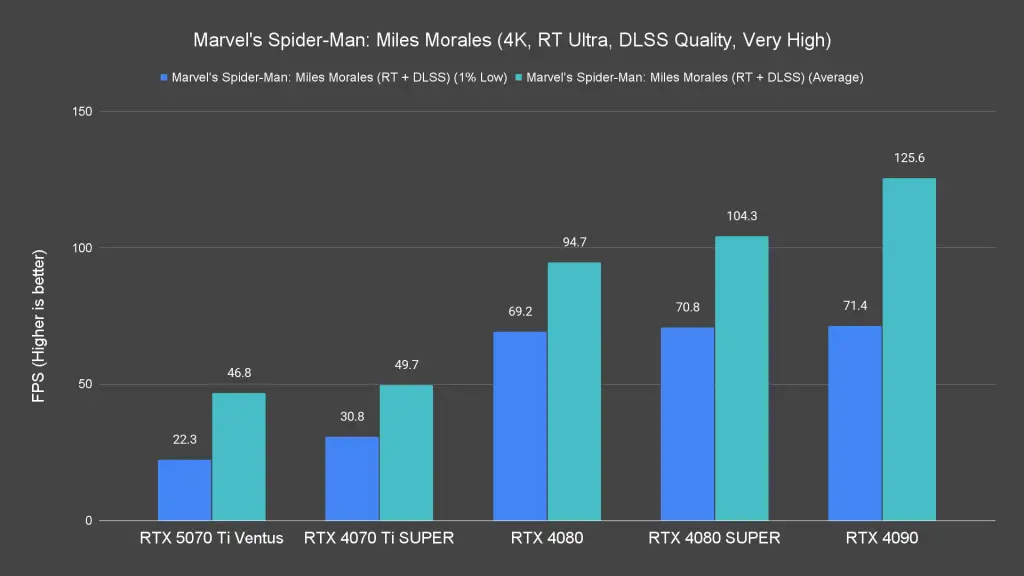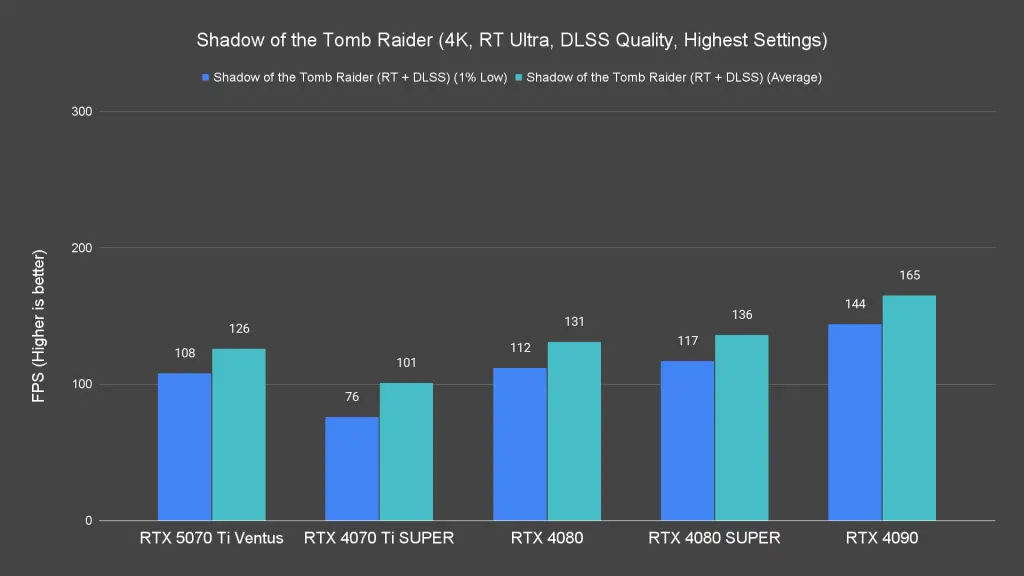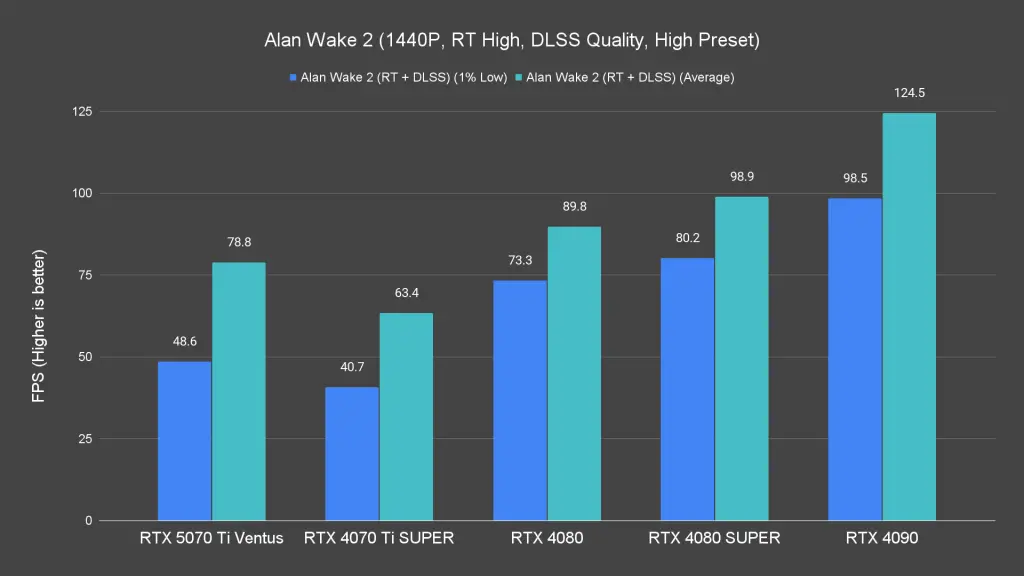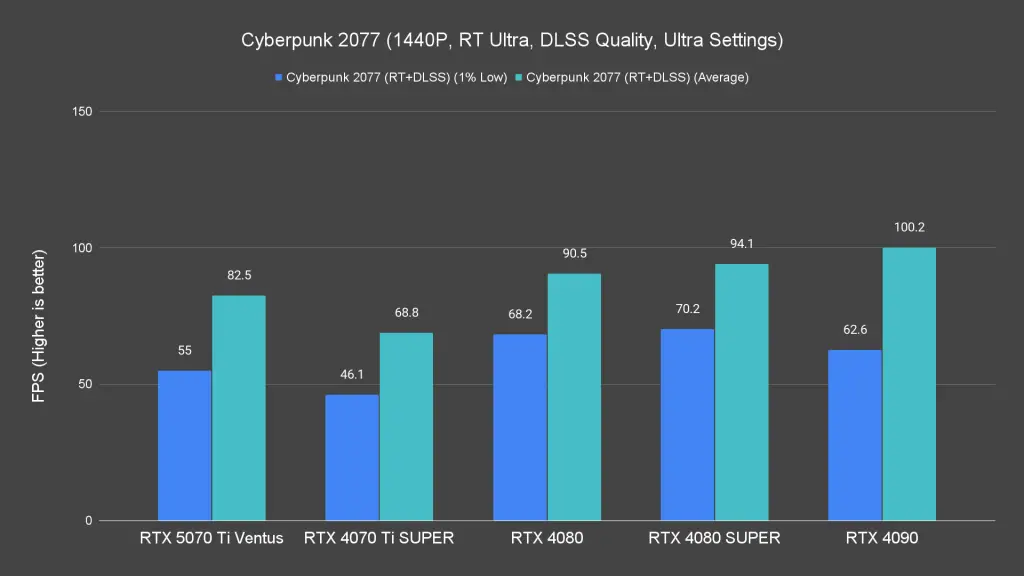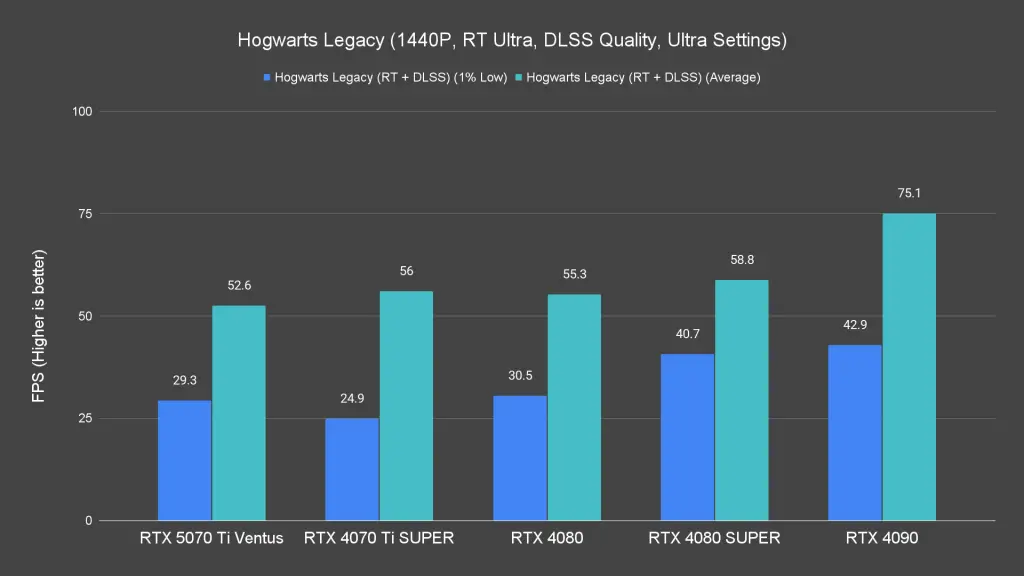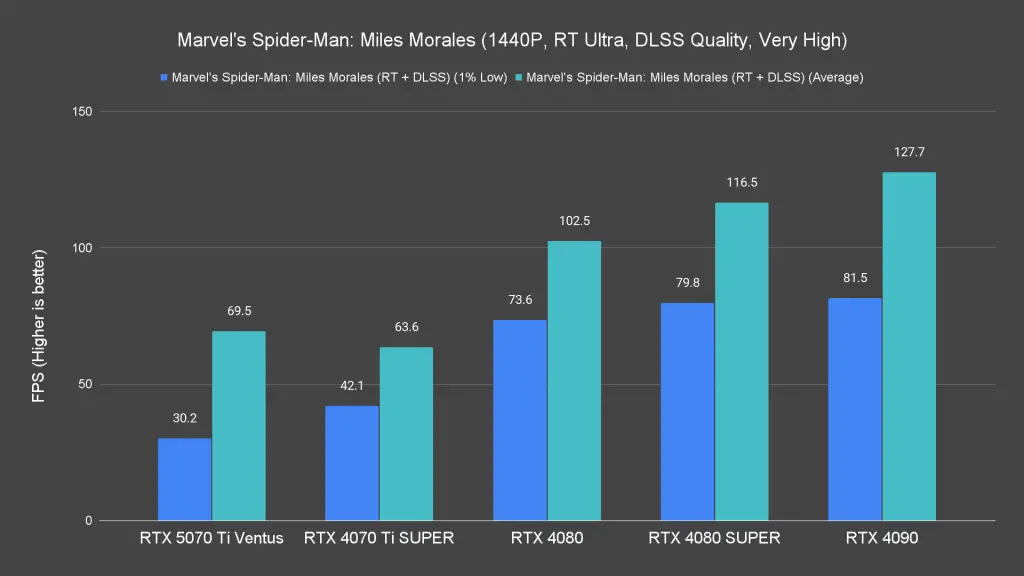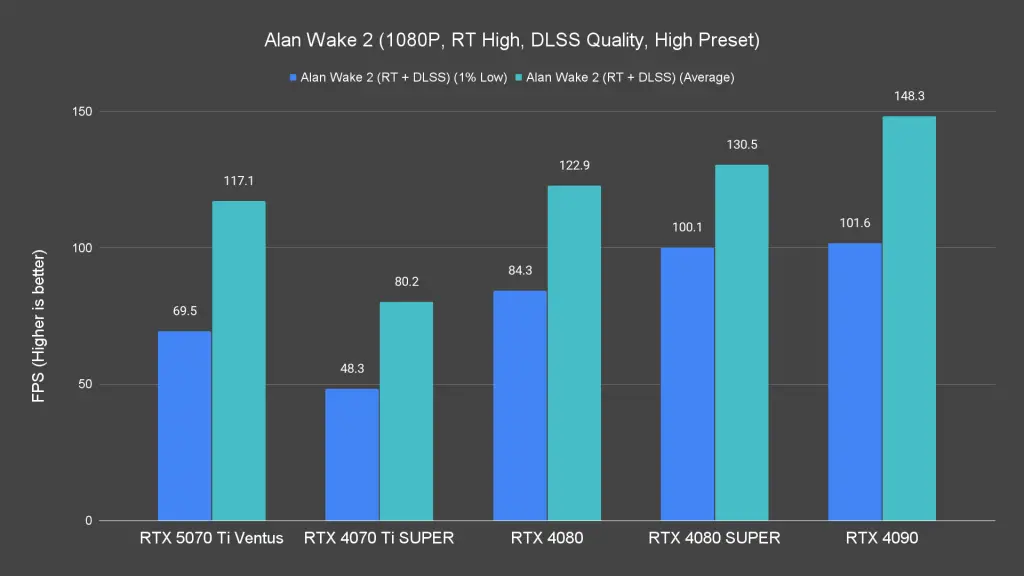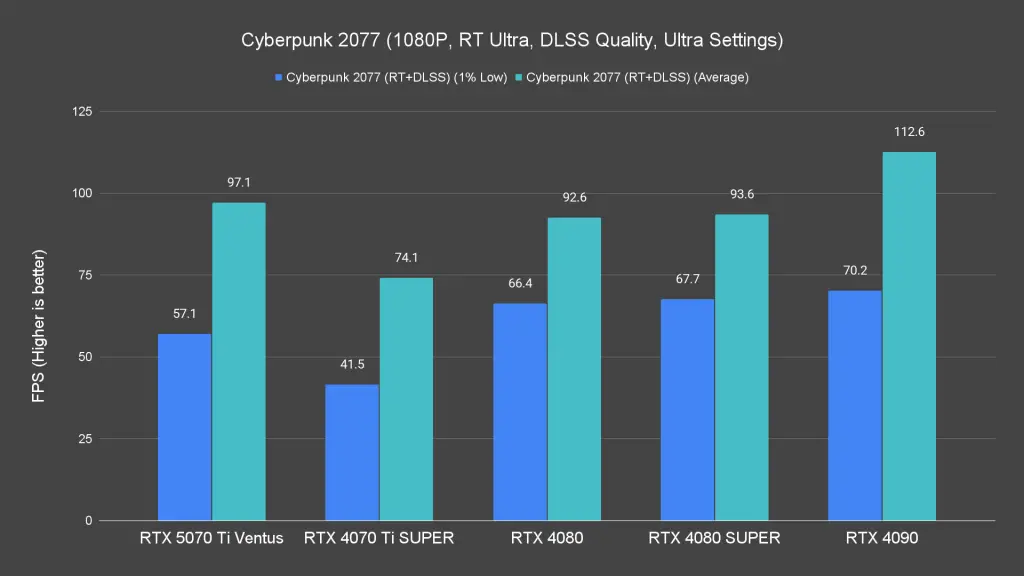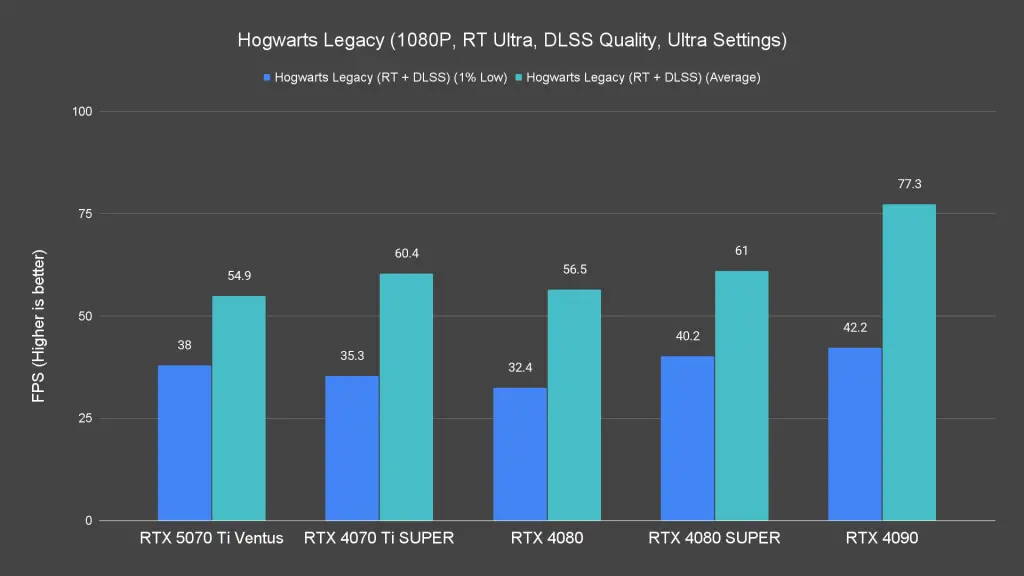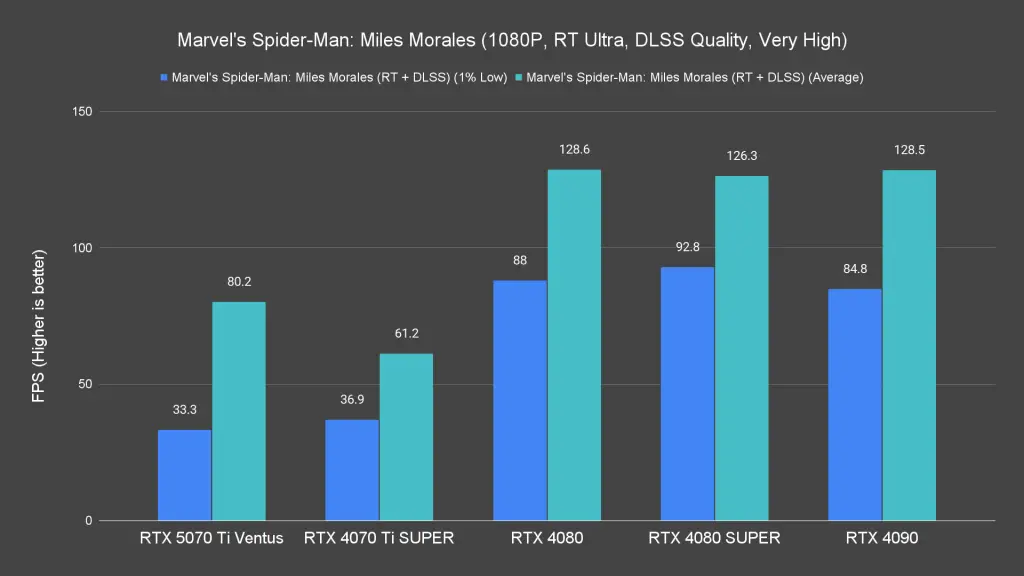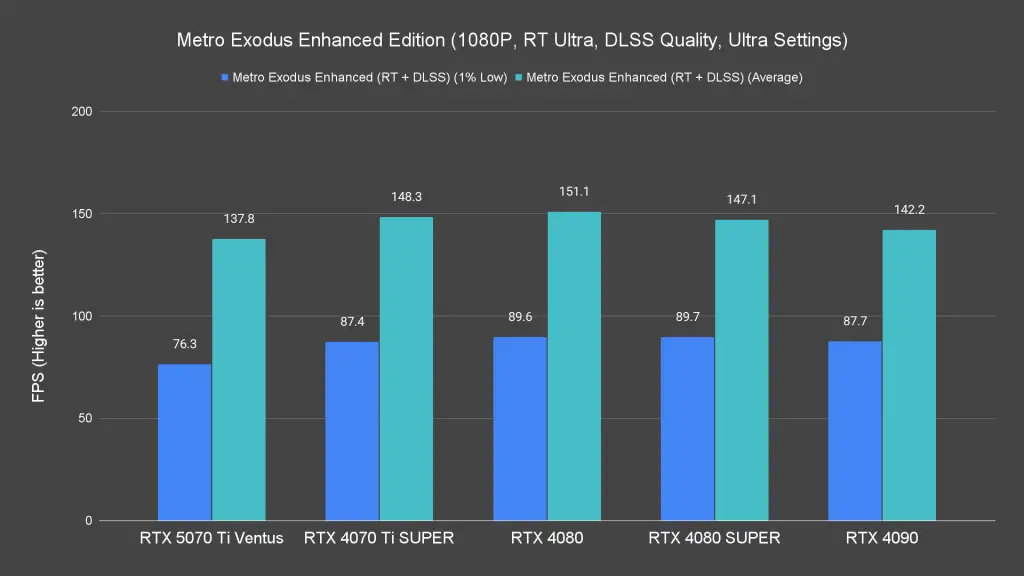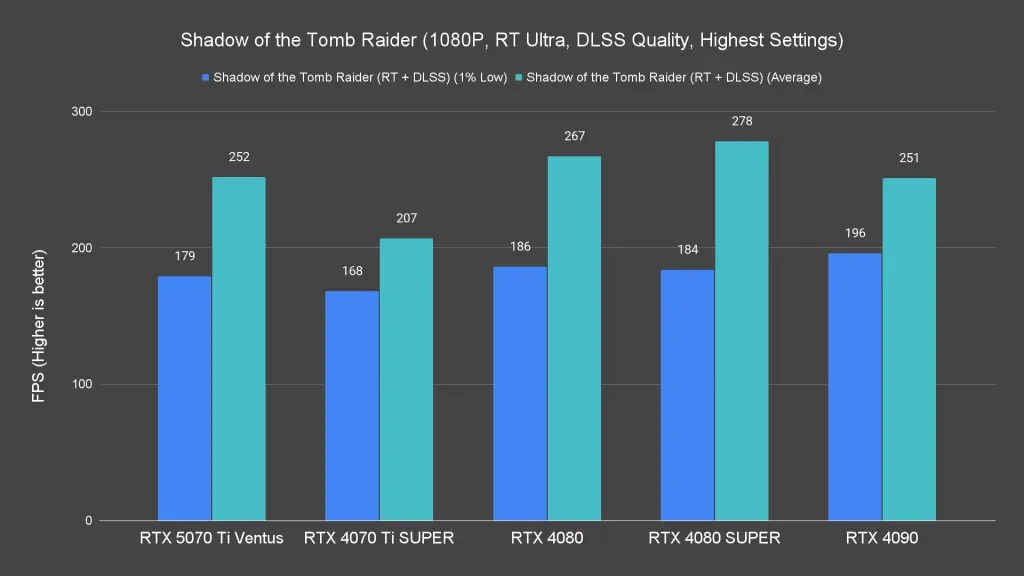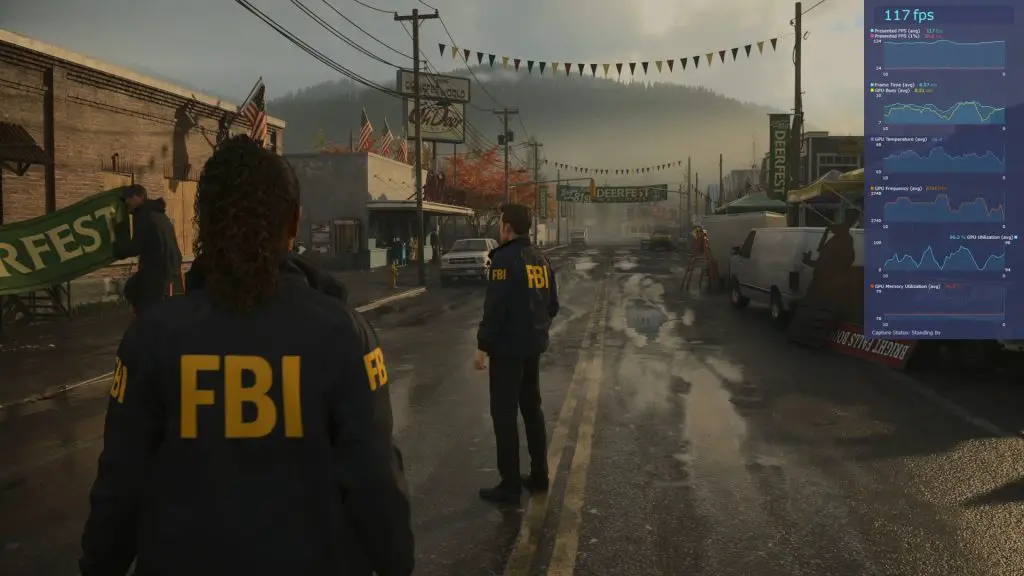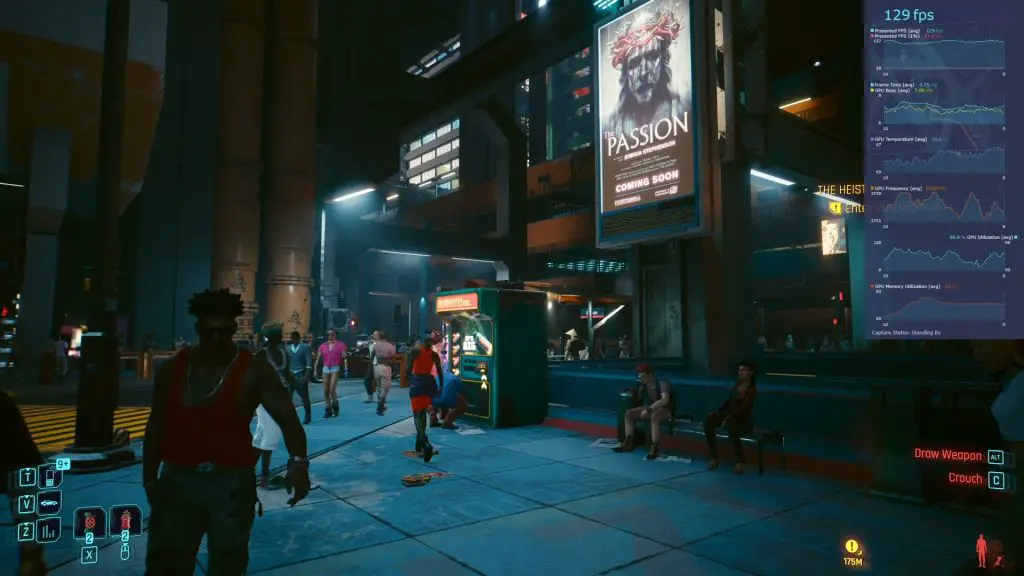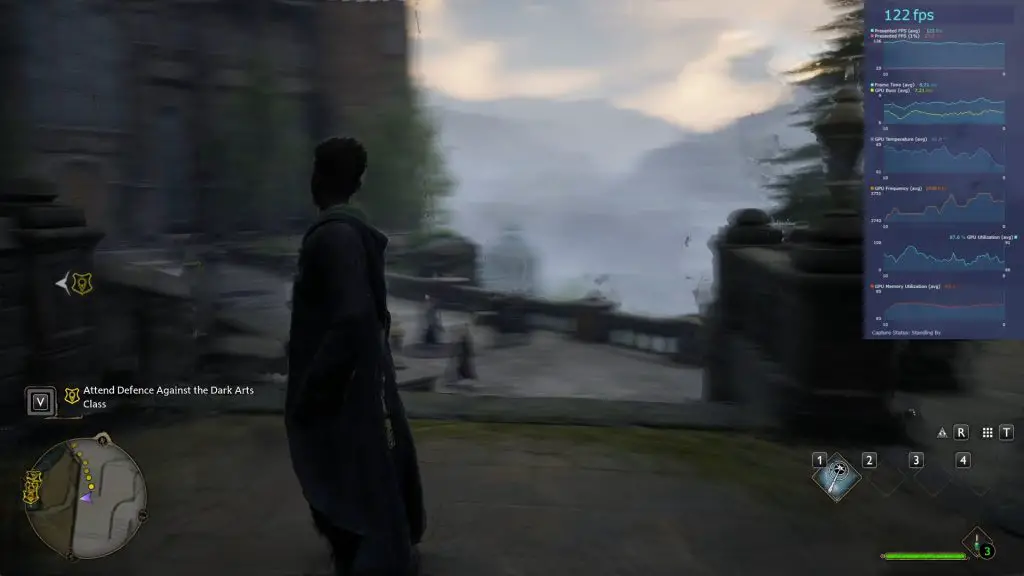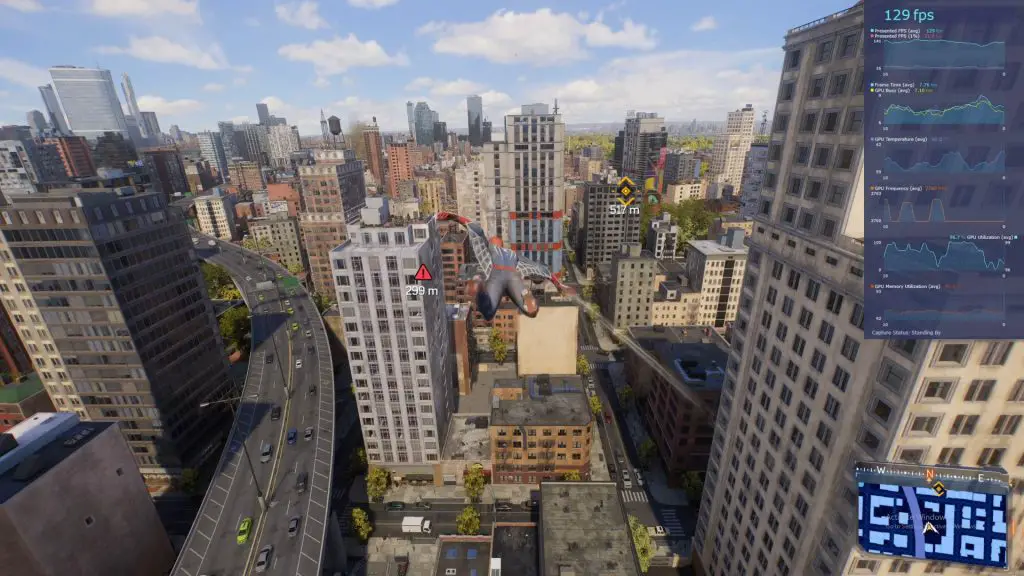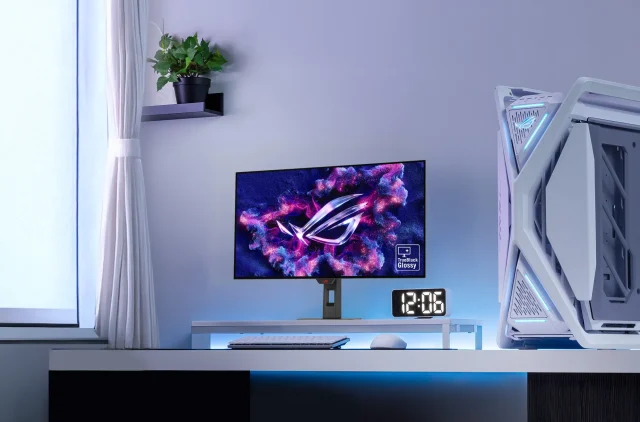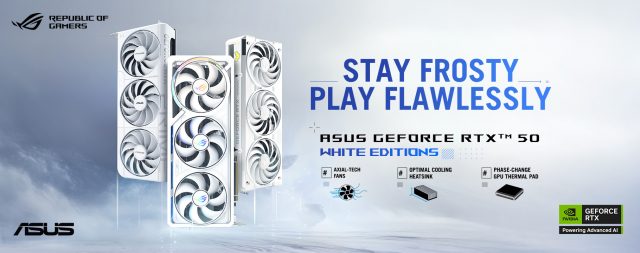The RTX 5070 Ti is finally here, however, just like the RTX 40 series, there’s no Founders Edition for this model. Instead, we’re reviewing the MSI GeForce RTX 5070 Ti Ventus 3X, the most affordable RTX 5070 Ti that MSI has to offer this time around.
To gauge its performance, we’ve tested it against the RTX 4070 Ti SUPER, RTX 4080, RTX 4080 SUPER, and even the RTX 4090. With a starting price of $749, does this card offer enough value for your next upgrade? Let’s find out.
Unboxing
Despite being the most basic RTX 5070 Ti variant from MSI, the packaging is surprisingly well thought out. The card is tightly packed in thick foam for extra protection. Inside the box, you’ll find a 2 x 8-pin to 1 x 12VHPWR adapter and a GPU holder—keeping things simple and practical.
As for the card itself, it’s a two-slot GPU with a triple-fan cooler. Unlike the massive RTX 5090 and 5080, which demand large PC cases, the RTX 5070 Ti is much more reasonable in size, making it a better fit for compact builds.
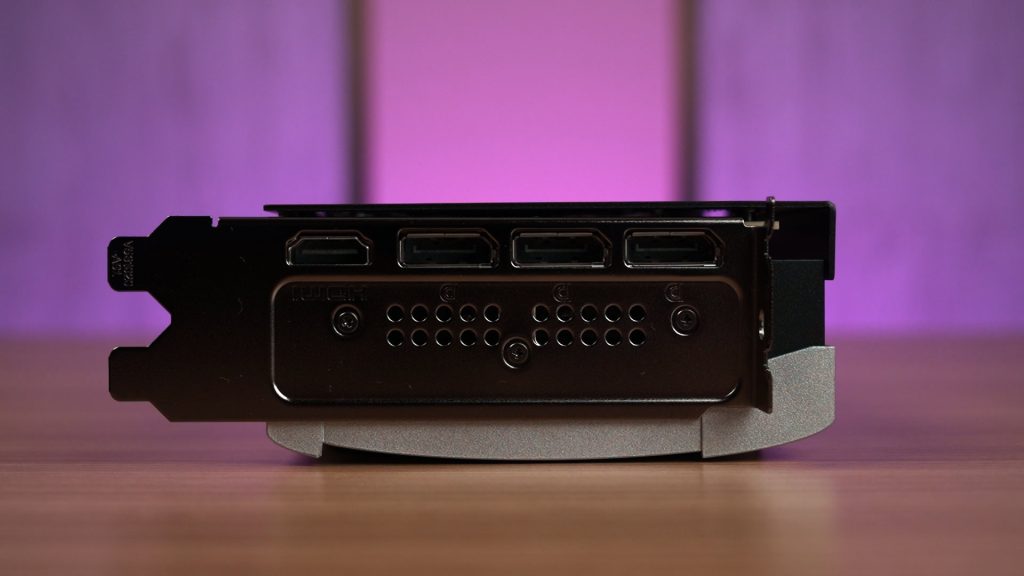
It has a rated TDP of 300W and requires at least a 750W PSU. Display output options are standard, featuring three DisplayPort connections and one HDMI port—something we’ve seen across most GPUs.
Base Performance Test
Before diving into the benchmark numbers, here are the specs of our test bench:
- CPU: Intel Core i9-14900K
- Motherboard: ASUS ROG Maximus Z790 APEX ENCORE
- Memory: KLEVV CRAS V RGB ROG Certified DDR5 (24GB x2)
- Graphics Card: RTX 5090 Founders Edition / RTX 4090 Founders Edition
- Power Supply: Cooler Master M2000 Platinum
- Primary Storage: Kingston KC3000 2TB
- CPU Cooler: Cooler MasterLiquid PL360 Flux
- Chassis: Cooler Master MasterFrame 700
- Operating System: Windows 11 Pro 64-bit 24H2
We’ll first examine rasterized and ray tracing benchmarks without frame generation to understand the card’s raw performance. This will help us see how it compares to previous-generation cards like the RTX 4070 Ti SUPER, 4080, 4080 SUPER, and 4090.
Rasterization Performance
For a GPU targeted at 1440p gaming, the RTX 5070 Ti delivers surprisingly strong performance, even at 4K. In most of our tests, it outperforms the RTX 4070 Ti SUPER—except for an odd performance drop in Hogwarts Legacy.
At 1440p, while the 5070 Ti provides a decent improvement over the 4070 Ti SUPER, it doesn’t quite reach the levels of the RTX 4080 or 4080 SUPER. This might be disappointing for those expecting it to match or exceed those cards.
A similar trend is observed at 1080p. While the RTX 5070 Ti still performs better than the RTX 4070 Ti SUPER by quite a margin, in certain games like Spider-Man: Miles Morales, Horizon Zero Dawn, and Hogwarts Legacy, the RTX 4070 Ti SUPER performs slightly better than the 5070 Ti.
From this, we can see that the RTX 5070 Ti is positioned below the RTX 4080 and 4080 SUPER under standard conditions.
Ray Tracing Performance
Moving on to ray tracing, the performance gap between the RTX 5070 Ti and the RTX 4070 Ti SUPER becomes more pronounced. At 4K, most games remain playable but struggle to maintain 60 FPS on average, affecting overall smoothness.
At 1440p, while the 5070 Ti consistently outperforms the 4070 Ti SUPER, it still doesn’t surpass the 4080 or 4080 SUPER, apart from in Hogwarts Legacy.
At 1080p, we start to see the RTX 5070 Ti getting closer to the RTX 4080, but the overall performance hierarchy remains the same across most of our tests.
DLSS 4 – The Game Changer?
So far, the RTX 5070 Ti is doing better than the RTX 4070 Ti SUPER, but because it’s not outperforming the RTX 4080 or RTX 4080 SUPER like some hoped for, it may not be enough to excite most users. However, as we’ve seen in our reviews of the RTX 5090 and 5080, the biggest performance boost in the RTX 50 series comes from DLSS 4 and its multi-frame generation feature.
Many users remain skeptical about AI-generated frames, but there’s no denying that DLSS 4 delivers performance levels we never thought possible.
With multi-frame generation enabled, demanding AAA titles like Hogwarts Legacy, Cyberpunk 2077, and Alan Wake 2—which typically hover around 30-40 FPS on max settings at 4K—become playable at over 120 FPS. Input responsiveness remains smooth, making this a viable option for high-refresh-rate gaming.
For games without an in-game frame generation multiplier option, NVIDIA’s DLSS Override feature in the NVIDIA App allows users to force-enable 4x frame generation. For example, Spider-Man 2 on PC doesn’t natively support this setting, but with DLSS Override, it can still reach those higher frame rates.
While this essentially makes the RTX 5070 Ti a 4K-capable card, the AI-generated frames aren’t perfect, with occasional artifacts appearing in fast-motion scenes. However, these imperfections are minor and only noticeable if you’re specifically looking for them—a fair trade-off for the performance boost.
Power Draw & Thermals
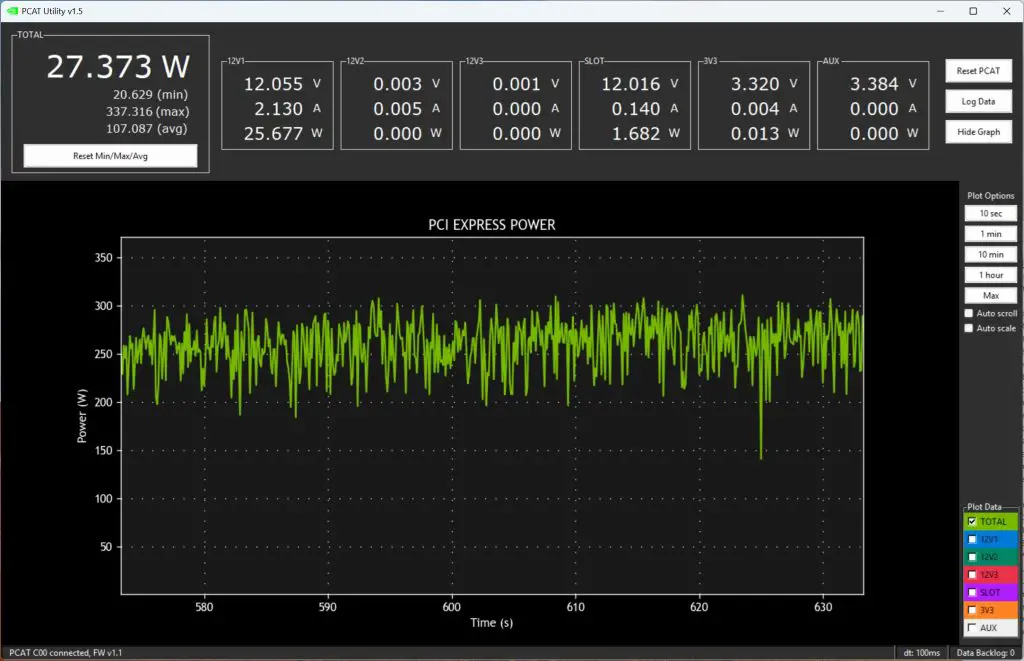
In video editing and rendering tests, the RTX 5070 Ti draws around 300-330W, slightly higher than the RTX 4070 Ti SUPER’s 280-300W range. During gaming, power consumption varies by title, but in demanding games like Cyberpunk 2077, we recorded a peak draw of around 337W.
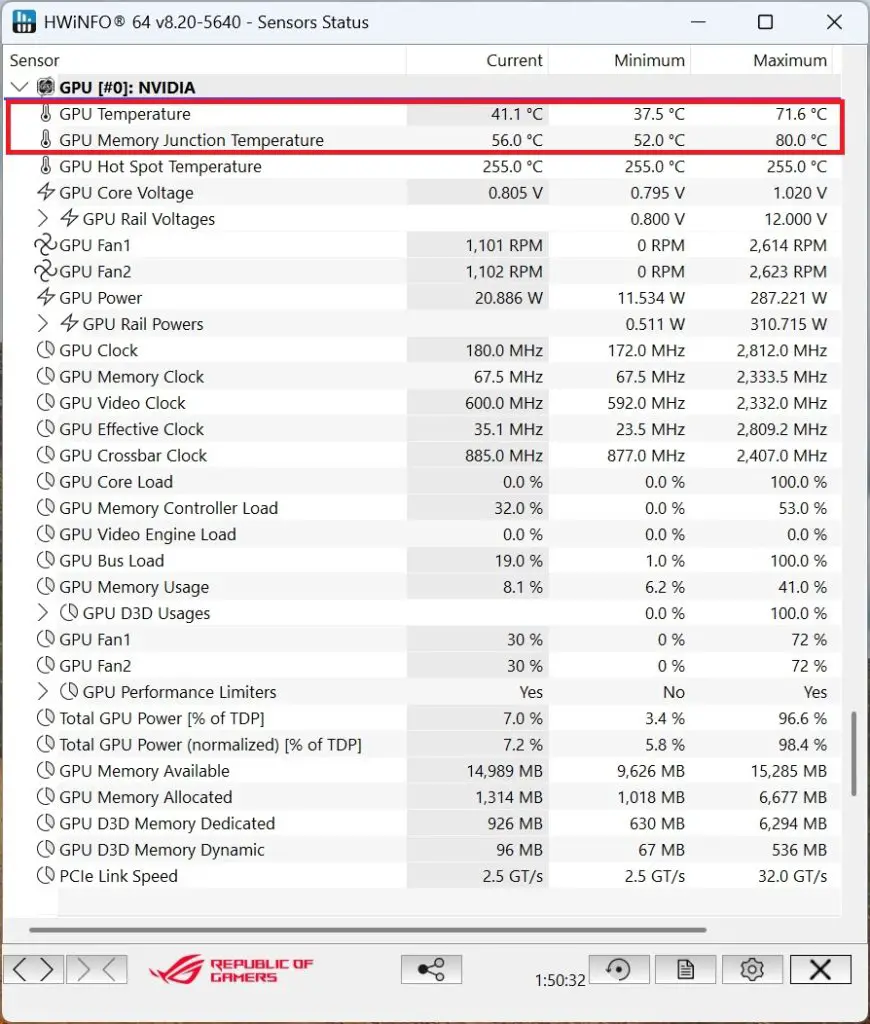
As for thermals, the highest recorded GPU temperature during synthetic benchmarks was 71.6°C, with memory junction temperatures hitting 80°C. However, in gaming, temperatures were slightly lower, averaging around 70.2°C and 77°C, respectively—fairly acceptable for a high-performance GPU.
Final Thoughts

The RTX 5070 Ti may not be an exciting option for those expecting a major leap over the RTX 4080 or RTX 4080 SUPER, but it does show a pretty good gain over the RTX 4070 Ti SUPER, which I think is a solid addition to NVIDIA’s RTX 50 series lineup. On average, the RTX 5070 Ti is about 10-20% faster than the RTX 4070 Ti SUPER in raster and ray tracing performance.
The gain is reasonable enough even for those who want to upgrade from the RTX 4070 Ti or 4070 Ti SUPER, but it’s not a must as both cards are still powerful enough to handle the majority of the newer AAA titles today. However, its biggest advantage is clear: DLSS 4, which is currently limited to the RTX 50 series only. With full support for AI-driven frame generation, Blackwell GPUs can achieve significantly higher frame rates in supported titles.
So, should you buy the RTX 5070 Ti? At $749, though still costly, I think it’s a solid upgrade, even from an RTX 4070 Ti or 4070 Ti SUPER, especially if you’re eager for multi-frame generation, given its increasing adoption in modern games. The only remaining issue is likely price. If the RTX 5080 and 5090 are any indication, the RTX 5070 Ti will likely be overpriced too.


